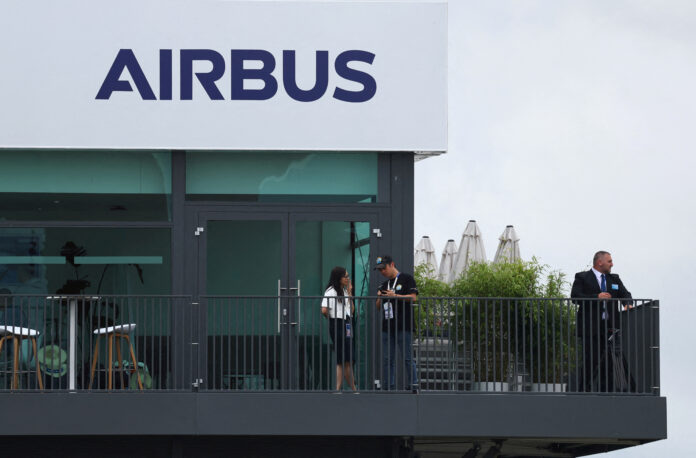
Airbus to Cut 2,500 Jobs in Defence and Space Division Amid Struggles in Satellite Business
On October 16, Airbus announced plans to cut up to 2,500 jobs within its Defence and Space division. This decision comes after months of closely analyzing significant financial losses in its satellite business. The European aerospace giant, which is also a major player in the production of satellites, transporters, and in various European missile, fighter, and space-launch programs, will implement the cuts, which account for 7% of the division’s workforce, by mid-2026. However, the company has opted to delay taking any immediate restructuring charges until after discussions with labor unions are held.
The decision follows ongoing challenges within the company’s space systems segment, which has been hit by 1.5 billion euros ($1.63 billion) in financial charges in recent quarters. The main sources of these losses stem from rising costs and delays in its defense projects and the high-tech OneSat project, which is a reprogrammable satellite initiative.
These job cuts are part of a broader restructuring strategy within Airbus’s Defence and Space business, which has undergone more than a year of efficiency reviews, including a program called ATOM. According to Mike Schoellhorn, CEO of Airbus’s Defence and Space division, this restructuring is crucial in response to the challenges in the increasingly competitive and difficult space market. Schoellhorn emphasized that the company needs to become more agile, streamlined, and competitive to survive in the evolving landscape.
As Airbus pushes forward with its turnaround plans for its struggling Space Systems business, it has not waited for the outcome of satellite consolidation talks. These talks involve Italy’s Leonardo (LDOF.MI) and France’s Thales (TCFP.PA), but Airbus is already making moves to address its financial challenges. Job losses will also affect the headquarters of its Germany-based defense unit, adding pressure on Airbus to manage the restructuring sensitively in multiple countries.
Airbus, headquartered in France but with major operations in Germany, Britain, and Spain, must now engage in negotiations with unions and government stakeholders in each of these nations. The discussions are expected to focus on how and where job cuts will be implemented, a sensitive topic given the political and economic implications of reducing high-tech manufacturing jobs.
A source close to the negotiations described the process as “horse-trading,” underscoring the complexity of balancing corporate needs with the demands of various stakeholders. It is expected that many of the job losses will be absorbed through voluntary departures and retirements, reducing the impact of forced layoffs.
While Airbus braces for the financial costs of restructuring, it has not yet committed to taking new provisions to cover those expenses. Analysts were briefed in a webcast ahead of the company’s October 30 results, where it was indicated that no additional charges would be made in the third-quarter results. This webcast was part of a new initiative following European market guidelines aimed at increasing transparency.
The company has also been examining its financial books to fully understand the embedded losses within complex forward service contracts related to its satellite projects, including OneSat. This deep dive into Airbus’s financial position has revealed a critical cost situation in the Defence and Space unit, leading to the urgent need for cash containment measures, as previously reported by Reuters in July.
Earlier this year, Airbus Group CEO Guillaume Faury discussed the company’s strategy for scaling up its defense, space, and satellite operations. He noted that traditional players in the satellite industry have faced significant disruption due to the rise of new satellite constellations, and Airbus is looking to strengthen its position amid these challenges.
Despite the increased defense spending across Europe following Russia’s invasion of Ukraine in 2022, Airbus has not fully benefited from the rearmament efforts. Much of the spending has gone to non-European suppliers, and the most urgent defense needs have not involved the large platforms that Airbus specializes in. According to Sash Tusa, an analyst at Agency Partners, the real boost in defense spending has been directed toward munitions and missiles, areas where Airbus is less focused.
As the company navigates these turbulent times, its plans for the Defence and Space division will play a crucial role in its broader strategy to maintain competitiveness in a shifting aerospace and defense landscape.

